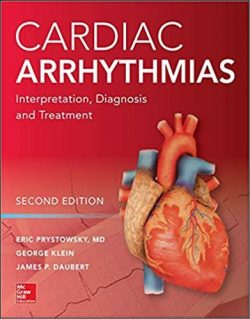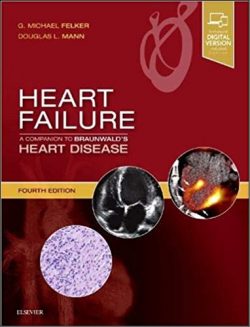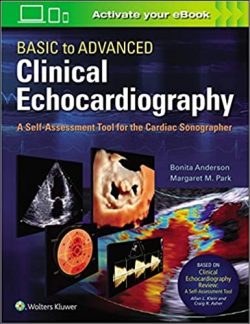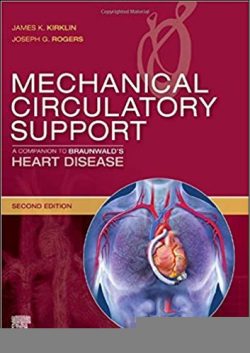This book provides readers with the most up-to-date information on cutting-edge research concerning chronic inflammation. We now know that when inflammation becomes chronic, it acts as a strong disease-promoting factor in a variety of disorders including arteriosclerosis, obesity, cancer, and Alzheimer disease. Chronic inflammation is hence called as the “silent killer”; it upsets the body’s homeostatic mechanism insidiously. In spite of these developments, we know very little about the mechanism underlying chronic inflammation. Particularly, we do not know precisely what induces chronic inflammation or what promotes its prolongation in a spatiotemporal framework. Neither do we have clear knowledge about how chronic inflammation destroys various tissues or how it predisposes individuals to many different diseases. To make the situation worse, we have no effective treatment against chronic inflammation.
Since 2010, two major research programs (CREST and PRESTO) aimed at clarifying the mechanisms underlying chronic inflammation were launched in Japan, and investigators of different research areas with a brilliant track record were selected by their research proposals. Subsequently they have made their best efforts to answer the conundrum concerning chronic inflammation. This book is a compendium of such research efforts. In each chapter, the CREST- or PRESTO-funded researchers summarize their original work concerning mechanisms of induction, progression, or resolution underlying chronic inflammation. The most emphasized characteristic is the molecular aspect of chronic inflammation. The book thus presents the most recent progress made in the molecular understanding of chronic inflammation.
Part 1. Basic mechanisms underlying induction, progression, and resolution of chronic inflammation.- 1 Prostaglandins in chronic inflammation.- 2 Cellular and molecular mechanisms of chronic inflammation-associated organ fibrosis.- 3 Sema4A and chronic inflammation.- 4 MicroRNAs in Chronic Inflammation Diseases.- 5 Genetic dissection of autoinflammatory syndrome.- 6 Structural biology of chronic inflammation-associated signaling pathways: toward structure-guided drug development.- 7 Lipid signals in the resolution of inflammation.- 8 Regulation of chronic inflammation by control of macrophage activation and polarization.- 9 Clarification of the molecular mechanisms that negatively regulate inflammatory responses.- 10 The Drosophila Toll pathway: a model of innate immune signaling activated by endogenous ligands.- Part 2. Imaging analyses of chronic inflammation.- 11 Macrophage dynamics during bone resorption and chronic inflammation.- 12 Development of imaging mass spectrometry techniques for visualizing localized cellular signaling mediators in tissues.- 13 Tracking of follicular T cell dynamics during immune responses and inflammation.- Part 3. Chronic inflammation and cancer.- 14 The role of chronic inflammation in the promotion of gastric tumorigenesis.- 15 Cellular senescence as a novel mechanism of chronic inflammation and cancer progression.- 16 Establishment of diagnosis for early metastasis.- 17 Non-autonomous tumor progression by oncogenic inflammation.- 18 Inflammation-associated carcinogenesis mediated by the impairment of microRNA function in the gastroenterological organs.- 19 Roles of Epstein–Barr virus micro RNAs in Epstein–Barr virus-associated malignancies.- Part 4. Chronic inflammation and obesity/environmental stress.- 20 Chronicity of immune abnormality in atopic dermatitis: Interacting surface between environment and immune system.- 21 Role of double-stranded RNA pathways in immunometabolism in obesity.- 22 Molecular mechanisms underlying obesity-induced chronic inflammation.- 23 Roles of mitochondrial sensing and stress response in the regulation of inflammation.- 24 Oxidative stress regulation by reactive cysteine persulfides in inflammation.- Part 5. Chronic inflammation and innate immunity.- 25 Post-transcriptional Regulation of Cytokine mRNA Controls the Initiation and Resolution of Inflammation.- 26 Roles of C-type Lectin Receptors in Inflammatory Responses.- 27 Elucidation and control of the mechanisms underlying chronic inflammation mediated by invariant natural killer T cells.- 28 Understanding of the role of plasmacytoid dendritic cells in the control of inflammation and T-cell immunity.- 29 Mechanisms of lysosomal exocytosis by immune cells.- 30 Potential Therapeutic Natural Products for the Treatment of Obesity-associated Chronic Inflammation by Targeting TLRs and Inflammasomes.- Part 6. Chronic inflammation and adaptive immunity.- 31 Human and mouse memory-type pathogenic Th2 (Tpath2) cells in airway inflammation.- 32 Controlling the mechanism underlying chronic inflammation through the epigenetic modulation of CD4 T cell senescence.- 33 Adrenergic control of lymphocyte dynamics and inflammation.- 34 The multifaceted role of PD-1 in health and Disease.- 35 The role of lysophospholipids in immune cell trafficking and inflammation.- Part 7. Chronic inflammation and autoimmune diseases.- 36 Devising novel methods to control chronic inflammation via regulatory T cells.- 37 Control of chronic inflammation through elucidation of organ-specific autoimmune disease mechanisms.- 38 Lysophosphatidylserine as an inflammatory mediator.- 39 Aberrant activation of RIG-I like receptors and autoimmune diseases.- 40 Elucidation of the exacerbation mechanism of autoimmune diseases caused by disruption of the ion homeostasis.- Part 8. Chronic inflammation and aging.- 41 Pathophysiological role of chronic inflammation in aging-associated diseases.- 42 Uterine cellular senescence in the mouse model of preterm birth.- Part 9. Chronic inflammation and bowel diseases.- 43 Physiological and Pathological Inflammation at the Mucosal Frontline.- 44 Control of intestinal regulatory T cells by human commensal bacteria.- 45 Roles of the epithelial autophagy in the intestinal mucosal barrier.- 46 Development of sentinel-cell targeted therapy for inflammatory bowel diseases.- 47 Identification of long non-coding RNAs involved in chronic inflammation in Helicobacter pylori infection and associated gastric carcinogenesis.- Part 10. Chronic inflammation and central nervous system disease.- 48 The research for the mechanism of chronically intractable pain based on the functions of microglia as brain immunocompetent cell.- 49 The role of innate immunity in ischemic stroke.- 50 Chronic neuroinflammation underlying pathogenesis of Alzheimer’s disease.- Part 11. Chronic inflammation and cardiovascular diseases.- 51 The roles of hypoxic responses during the pathogenesis of cardiovascular diseases.- 52 Prevention and treatment of heart failure based on the control of inflammation.
Masayuki Miyasaka, MD, PhD
Specially-Appointed Professor, IPBS, Osaka University,
Professor Emeritus, Osaka University,
FiDiPro Professor, Academy of Finland,
JST-CREST “Chronic Inflammation” Research Supervisor
Kiyoshi Takatsu, PhD
Director, Toyama Prefectural Institute for Pharmaceutical Research,
Visiting Professor, University of Toyama,
Professor Emeritus, The University of Tokyo,
JST-PRESTO “Chronic Inflammation” Research Supervisor
This book provides readers with the most up-to-date information on cutting-edge research concerning chronic inflammation. We now know that when inflammation becomes chronic, it acts as a strong disease-promoting factor in a variety of disorders including arteriosclerosis, obesity, cancer, and Alzheimer disease. Chronic inflammation is hence called as the “silent killer”; it upsets the body’s homeostatic mechanism insidiously. In spite of these developments, we know very little about the mechanism underlying chronic inflammation. Particularly, we do not know precisely what induces chronic inflammation or what promotes its prolongation in a spatiotemporal framework. Neither do we have clear knowledge about how chronic inflammation destroys various tissues or how it predisposes individuals to many different diseases. To make the situation worse, we have no effective treatment against chronic inflammation.
Since 2010, two major research programs (CREST and PRESTO) aimed at clarifying the mechanisms underlying chronic inflammation were launched in Japan, and investigators of different research areas with a brilliant track record were selected by their research proposals. Subsequently they have made their best efforts to answer the conundrum concerning chronic inflammation. This book is a compendium of such research efforts. In each chapter, the CREST- or PRESTO-funded researchers summarize their original work concerning mechanisms of induction, progression, or resolution underlying chronic inflammation. The most emphasized characteristic is the molecular aspect of chronic inflammation. The book thus presents the most recent progress made in the molecular understanding of chronic inflammation.





